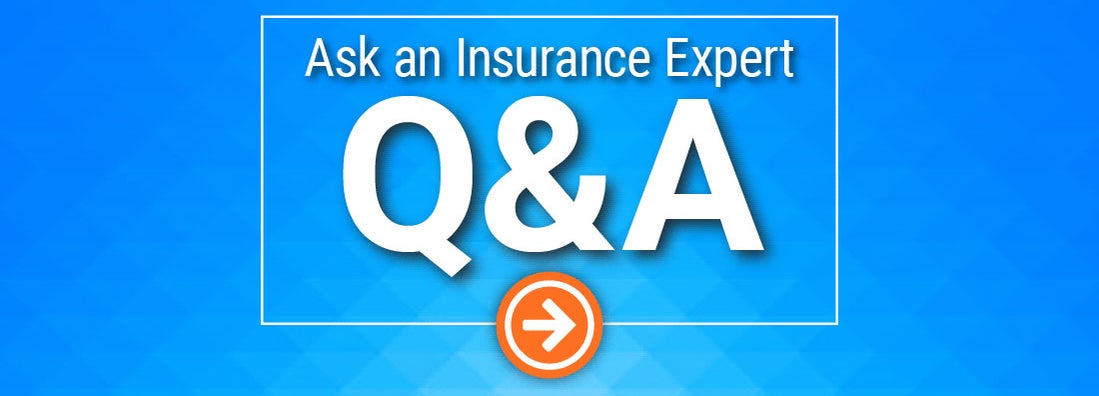Does Homeowners Insurance Cover Mortgage Payments?

Paul Martin is the Director of Education and Development for Myron Steves, one of the largest, most respected insurance wholesalers in the southern U.S.

Popular Questions:
Are mortgage payments covered under standard homeowners insurance policies?
When and how does homeowners insurance cover mortgage payments?
How much do I have to pay if homeowners insurance doesn't cover mortgage payments?
If homeowners insurance doesn’t cover mortgage payments, what will?
Expert(s) Found on this Page
Are mortgage payments covered under standard homeowners insurance policies?
As a new homeowner, I’m curious about what all is covered under my insurance. My mortgage is the highest recurring bill I’ve ever had to pay, by far. I worry about one day not being able to meet my monthly payment due to some unforeseen circumstance such as illness or job loss, and I don’t want to lose my home. Are mortgage payments covered under standard homeowners insurance policies?
No, unfortunately homeowners insurance does not provide assistance with mortgage payments that you’re unable to meet yourself. You would need an entirely separate kind of insurance policy for that, known as mortgage protection insurance. As far as standard homeowners policies are concerned, you won’t find coverage for your mortgage.
When and how does homeowners insurance cover mortgage payments?
Sadly, your homeowners policy will never help you with your mortgage payments. What standard homeowners insurance policies do offer built in is something called loss of use coverage. If your home gets struck by a bad windstorm, fire, or other covered peril and becomes temporarily uninhabitable, your insurance will provide coverage for the extra money required to maintain your regular lifestyle while living away from home.
You’ll still be required to keep making your mortgage payments while loss of use coverage provides funds for your temporary living expenses away from home, though. The limit for loss of use coverage is typically 20% of your home’s total insured value.
Loss of use coverage provides reimbursement to make up for the following:
- Temporary lodging: Your insurance policy will provide you with lodging that matches your regular lifestyle. So if you have a luxury estate, your insurance company will cover a pricier hotel suite or something similar, to match your typical way of living.
- Increased gas mileage: If your work commute becomes longer while living away from home, your insurance company will pay the difference in gas costs.
- Laundry services: If you’re unable to do your own laundry while living away from home, your insurance will reimburse you for having to use other services, such as laundromats.
- Additional food costs: If you’re unable to cook as normal while living in temporary lodging, your insurance will reimburse you for the additional costs of eating out or ordering room service, up to your policy’s limit.
So while your homeowners insurance doesn’t provide coverage to help with your mortgage payments, it does provide coverage for extra living expenses if something extreme happens to your home and temporarily dislodges you. You may want to review your specific policy to find out more details about your coverage.
How much do I have to pay, since homeowners insurance doesn’t cover mortgage payments?
As the homeowner, you’re responsible for making your mortgage payments on your own. Homeowners insurance will not offer you any assistance in making those payments. However, if you are looking for a different kind of insurance policy that will cover your mortgage payments, we’ll get into that next.
If homeowners insurance doesn’t cover mortgage payments, what will?
You’ll want to get a mortgage protection insurance policy if you’re worried about needing help paying your mortgage one day. These policies are mainly designed to cover homeowners in the event that they become disabled or temporarily unemployed and as a result are unable to make their mortgage payments. Coverage may provide reimbursement for a designated fraction of your mortgage or for the full amount for a set amount of time, depending on your policy.
Mortgage protection insurance offers the following coverage benefits:
- Disability: Mortgage protection insurance basically acts as a disability policy with extra benefits. Coverage will protect you by paying some or all of your mortgage for a specific amount of time, should you become injured or ill and unable to work as a result.
- Unemployment: If you get laid off and are temporarily unemployed, coverage can be set up to pay part or all of your mortgage while you are out of work.
- Death benefits: Mortgage protection insurance can also act a bit like a life insurance policy, in that it can be set up to pay off the remainder of your mortgage straight to the lender if you die. Certain policies also have features built in that allow for your designated beneficiary to collect the full amount of your original mortgage. Your beneficiary could then pay off any remaining balance on your mortgage, and treat the leftovers as a gift.
You’ll need to work closely with an experienced independent insurance agent to get set up with a policy that works in the way that you want it to. Different mortgage protection insurance policies may be designed to cover just one of the above aspects, several, or all of them.
Statista
